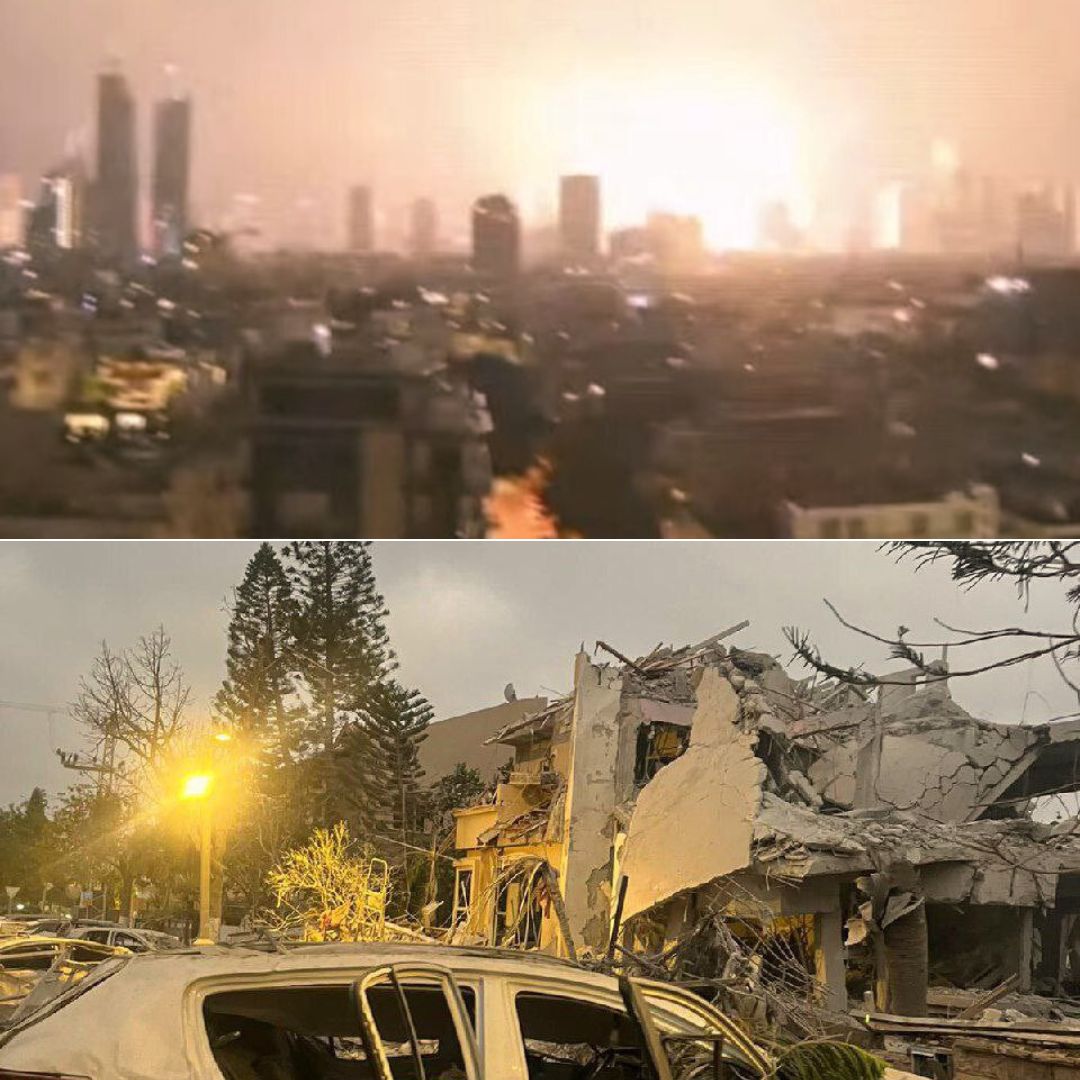On June 13, 2025, Israel launched a major air campaign named Operation Rising Lion targeting Iran’s nuclear facilities, missile manufacturing sites, and military leaders, including the killing of IRGC chief Hossein Salami.
In retaliation, Iran launched Operation True Promise III, firing over 150 ballistic missiles and more than 100 drones at Israeli cities such as Jerusalem and Tel Aviv, causing at least one death and over 40 injuries.
Both sides remain on high alert amid fears of prolonged conflict. Israeli Prime Minister Benjamin Netanyahu described the strikes as essential to Israel’s survival, while Iran’s Supreme Leader Ali Khamenei condemned them as “wicked and bloody,” warning of severe consequences. The United States has distanced itself from the strikes but is monitoring the situation closely.
Israel Iran Conflict Escalates
Israel’s strikes focused on crippling Iran’s uranium enrichment capacity, particularly at the Natanz facility, along with missile bases and military command centers. The attacks reportedly killed several high-ranking Iranian commanders, including IRGC chief Hossein Salami and other military leaders.
Israeli Defence Minister Israel Katz warned of imminent missile and drone retaliation, which materialised as Iran launched a massive missile and drone offensive targeting Israeli population centres. Explosions were reported in Jerusalem and Tel Aviv, with at least one civilian woman killed and dozens injured. Israeli air defences intercepted many missiles, but the attacks caused significant alarm and disruption, including the indefinite closure of Ben Gurion Airport.
Context and International Reactions: Deepening Regional Tensions
This latest violence is part of a broader, long-standing conflict over Iran’s nuclear ambitions and regional influence. Israeli officials assert that Iran is close to producing nuclear weapons, justifying the pre-emptive strikes as vital to national security.Iran’s Supreme Leader Khamenei denounced the Israeli attacks as an act of aggression, promising retaliation that would make Israel “helpless.”
Iranian President Masoud Pezeshkian’s first foreign call post-strikes was to Russian President Vladimir Putin, signalling closer Iran-Russia ties amid the crisis. The United States, while not involved militarily, has expressed concern and is preparing contingencies to protect its personnel. Global markets reacted nervously, with oil prices surging and stock markets falling.
The Logical Indian’s Perspective
The escalating cycle of violence between Israel and Iran highlights the urgent need for peaceful dialogue and diplomacy. Military confrontations risk devastating civilian populations and destabilising an already volatile region.
The Logical Indian advocates for empathy, restraint, and constructive engagement to break the cycle of retaliation and foster coexistence. In a world where conflict impacts global peace and security, how can international actors and regional powers work together to promote dialogue and prevent further bloodshed? We invite our readers to share their views on pathways to peace amid such enduring conflicts.
⚡️Iranian missile strike on central Tel Aviv, looks like a meteor pic.twitter.com/Iay0X0rfUK
— War Monitor (@WarMonitors) June 13, 2025












